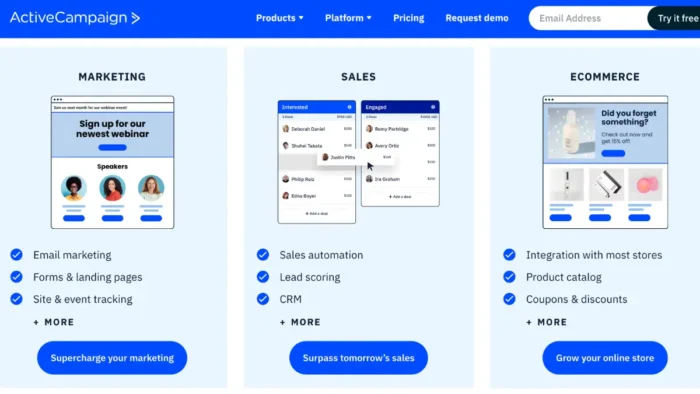The travel industry is a competitive industry. With so many travelers booking vacations online, it’s hard for travel businesses to compete with more prominent brands.
But with the help of digital platforms, travel brands like yours can get ahead (check out these digital marketing trends in 2023). This means you need to have an online presence if you want your business to grow. Your target clients can then find you online and book their next trip with you. However, ensuring the success of digital marketing strategies takes a lot of work. As you plan for campaigns, other brands do the same thing.
The question is how you can differentiate your travel company from theirs. If you can find a unique angle for your business and stick with it over time, you can encourage consumer loyalty. You’ll subsequently gain a higher market share. Here’s how to get started:
1. Publish Informative Content
Content is king when it comes to digital marketing. Giving your audiences something to look forward to encourages them to stick around longer. And if they do, you boost your chances of introducing your travel services to them.
This means that constantly creating informative content for them is a must. You can outsource the services of Morrisey Video Production or something similar. They can help you develop videos about destination guides, solo and group travel tips, and promotional clips.
In addition, partnering with influencers is helpful because they already have an established following. For instance, you can invite them to visit Paris on an all-expense trip. Then, they’ll tag your social handles on their Instagram posts, exposing you to their fans. Doing so can help you gain more followers who can become paying customers once they travel with you.
Related: Furnished Apartments in Austin: The Ultimate Solution for Short-Term Stays
2. Know Your Target Travelers
When you create digital marketing strategies, considering your target travelers is essential. Otherwise, you’ll likely create content that doesn’t resonate with their interests. You can’t inspire them to engage with your accounts or even unfollow you.
Thus, market research is one of the keys to a successful digital marketing campaign. Find out the preferences of your ideal audiences through social analytics. If you don’t have any posts yet, consider studying other travel brands online. Look at the content they publish and how they engage with their followers.
In addition, read about the reviews of customers who have already used their services. From there, use the insights to discover common pain points that they demand from your competitors.
For instance, they prefer a seamless booking option where they can plan their trip from start to finish on one platform. If this is an issue for them, create a website that allows users to book flights and hotels on one platform rather than two separate sites. This reduces the number of clicks necessary to make a purchase decision and thus increases the conversion rate.
By checking the weak points of your competitors, you may attract their consumers. You can then be closer to the goal of having them choose your travel company over other brands.

3. Leverage Testimonials
Most modern consumers now prefer to research a company before trying the services offered. This means they look up reviews and feedback on social media.
Therefore, see to it that you have plenty of testimonials available on your website and social media pages. That way, prospective travelers will see the positive comments and consider choosing your travel services.
If you already have a good connection with previous clients, you may reach out to them. You can write an e-mail about how you plan to create a better experience for them. Then, use a discount for their next trips to encourage them to publish an honest review.
4. Create A Mobile-Friendly Website
With the rise of mobile devices, most travelers now use smartphones or tablets to book flights and hotels. If your website isn’t mobile-responsive, users will have difficulty navigating your landing page. This creates a negative user experience, resulting in you losing potential clients.
You can avoid this by having a mobile version of your website. A responsive website performs well on different devices and screen sizes. It also means that users won’t have to deal with many pop-up banners, hindering them from reading information on your site. Most importantly, it uses a simple design, which affects its load time.
Travelers can then easily access your pages, giving them a positive user experience. In short, they will likely return and come to you for their travel needs.
Conclusion
The travel industry is constantly booming as more travelers plan to actualize their dream vacations. You have to get your brand out there. You do this through digital marketing strategies that can help you promote your services to potential customers.
If you follow the tips discussed above, you may attract travelers in your locality or even from all over the world. This means you can gain a higher market share, ensuring a successful travel business.



